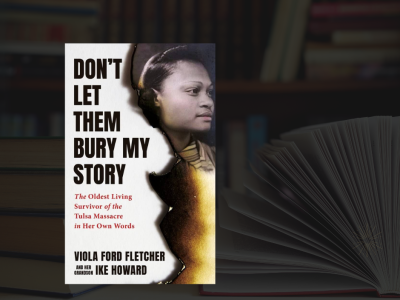In the heart of Tulsa, Oklahoma, lies the painful and forgotten history of the Tulsa massacre, also known as the Black Wall Street massacre. It was an event that shattered the lives of countless Black individuals, leaving scars that would last for generations. One survivor, Viola Fletcher, now 109 years old, has defied the passage of time and published her memoir, “Don’t Let Them Bury My Story.”
The Tulsa Massacre: A devastating legacy
Viola Fletcher was just seven years old when the Tulsa massacre unfolded in 1921. The Greenwood district, also known as Black Wall Street, was a thriving neighbourhood filled with Black-owned businesses, doctors, lawyers, and teachers. However, racial tensions reached a boiling point when a false accusation of assault against a Black boy named Dick Rowland sparked outrage among the White community. The subsequent violence unleashed by a White mob resulted in the destruction of Greenwood, leaving an estimated 300 Black people dead and thousands displaced.
The lasting impact and unforgettable memories
Viola Fletcher’s memories of that fateful night remain vivid even after a century. She recalls the smell of smoke and burning, the sight of Black bodies in the streets, and the relentless sound of gunfire. These memories have shaped her life and have never faded away. Despite the passage of time, the trauma and pain of the Tulsa massacre have continued to impact her and the surviving community.

Viola Fletcher’s memoir, “Don’t Let Them Bury My Story,” is a testament to her unwavering spirit and determination to ensure the truth is never forgotten. Co-written with her grandson, Ike Howard, the book chronicles the events of the Tulsa massacre, its aftermath, and the ongoing struggle for justice. The memoir offers a rare glimpse into the personal experiences of a survivor and the resilience of a community that refused to be silenced.
Overcoming obstacles: Finding a voice for the untold story
The road to publishing Viola Fletcher’s memoir was a challenging one. Initially, traditional publishers rejected the book, underscoring the challenges marginalised voices face in the publishing industry. However, publicist Margo Ochoa recognised the significance and power of Fletcher’s story and decided to publish the book herself under her newly formed Mocha Media company. Ochoa’s commitment to literary activism and amplifying Black stories paved the way for the world to hear Viola Fletcher’s voice.
Seeking justice: The fight for acknowledgment and reparations
While Viola Fletcher’s memoir serves as a powerful testament to the Tulsa massacre, the fight for justice and acknowledgement is far from over. Alongside the organisation Justice for Greenwood, Fletcher and the other two surviving victims filed a lawsuit in 2020 seeking restitution for the impacts of the massacre. However, the case faced multiple dismissals, and despite their latest attempt, the court ultimately dismissed the case, leaving the survivors without recourse. This dismissal sends a chilling message that the crimes committed against the Black community can be forgotten and buried.
Mayor G.T. Bynum, a sixth-generation Tulsan, acknowledges the role the city has played in perpetuating racial disparities and the need for healing. Bynum, who only learned about the Tulsa massacre in 2000, has since expressed regret and issued a statement apologising for the city’s involvement. He recognises the importance of finding the graves of the massacre victims, fostering economic investment in the Greenwood district, and educating future generations about the city’s history. Bynum’s support for these initiatives reflects a commitment to change and equality.
The significance of remembering: Greenwood’s Legacy Festival
In modern-day Tulsa, the Black Wall Street Legacy Festival serves as a month-long celebration of the survivors, the spirit of Greenwood, and the community’s future. Viola Fletcher, affectionately known as “Mother Fletcher,” is at the centre of this festival, sharing her story and inspiring hope for justice. The festival aims to spread truth, inspire hope, and extend tradition by ensuring that the stories of the survivors are known and remembered.
The Tulsa Massacre: A Chapter in America’s History
The Tulsa massacre is one of the most significant events of state-sanctioned racial violence and domestic terrorism in American history. It occurred during the tumultuous period known as the “Red Summer,” when racial tensions were high across the country. The destruction of Black Wall Street and the loss of countless lives left an indelible mark on the nation’s history. Acknowledging and confronting this painful past is crucial for healing and progress.
Viola Fletcher’s memoir, “Don’t Let Them Bury My Story,” is a powerful demonstration of the resilience of a survivor and the strength of a community that refused to be silenced. The Tulsa massacre may have scarred lives and destroyed a vibrant neighbourhood, but it has not erased the memory of those who lived through it. Viola Fletcher’s story and the fight for justice and acknowledgement remind us of the importance of confronting the darkest chapters in our history.





